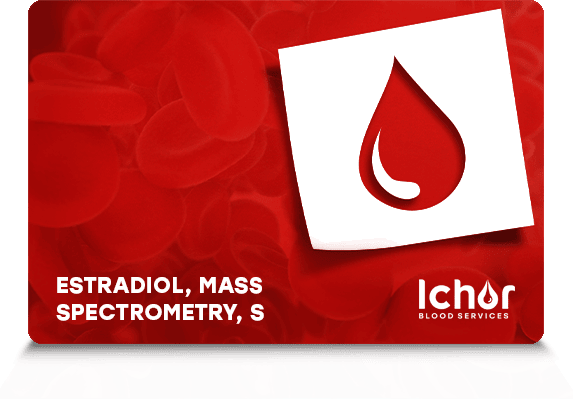
What Is It?
EEST, also known as Estradiol, Mass Spectrometry, S is a simple blood test that measures the level of estradiol in your blood. Estradiol is a form of the hormone, estrogen. In females estradiol is produced in the ovaries, breasts, and adrenal glands. In males estradiol is produced in the adrenal glands and testes.
Who Is It For?
Your physician may recommend EEST testing for females:
- If you are experiencing abnormal menstrual periods or abnormal vaginal bleeding
- If your menstrual cycle has stopped or you are experiencing symptoms of menopause
- If you have symptoms of an ovarian tumor
- If you are experiencing infertility
Your physician may recommend EEST testing for males:
- If you are experiencing gynecomastia (development of breast tissue in men) or feminization
- If there is precocious puberty (early onset) or delayed puberty
- If you are exhibiting symptoms of low estrogen such as fatigue, anxiety, irritability, sexual dysfunction, and fat accumulation
Estradiol, Mass Spectrometry is also useful in screening for function of the pituitary and adrenal glands.
Why Is It Important?
Estradiol, Mass Spectrometry provides your physician with a quantitative measurement of your estradiol levels that can help determine conditions associated with increased levels of estradiol such as tumors in the ovaries or testes, hyperthyroidism, and cirrhosis. Lower levels of estradiol can indicate menopause, polycystic ovary syndrome (PCOS), compromised estrogen production, sexual dysfunction and low libido and more. Understanding your estradiol levels will help you and your doctor make the most informed decisions about your care.
